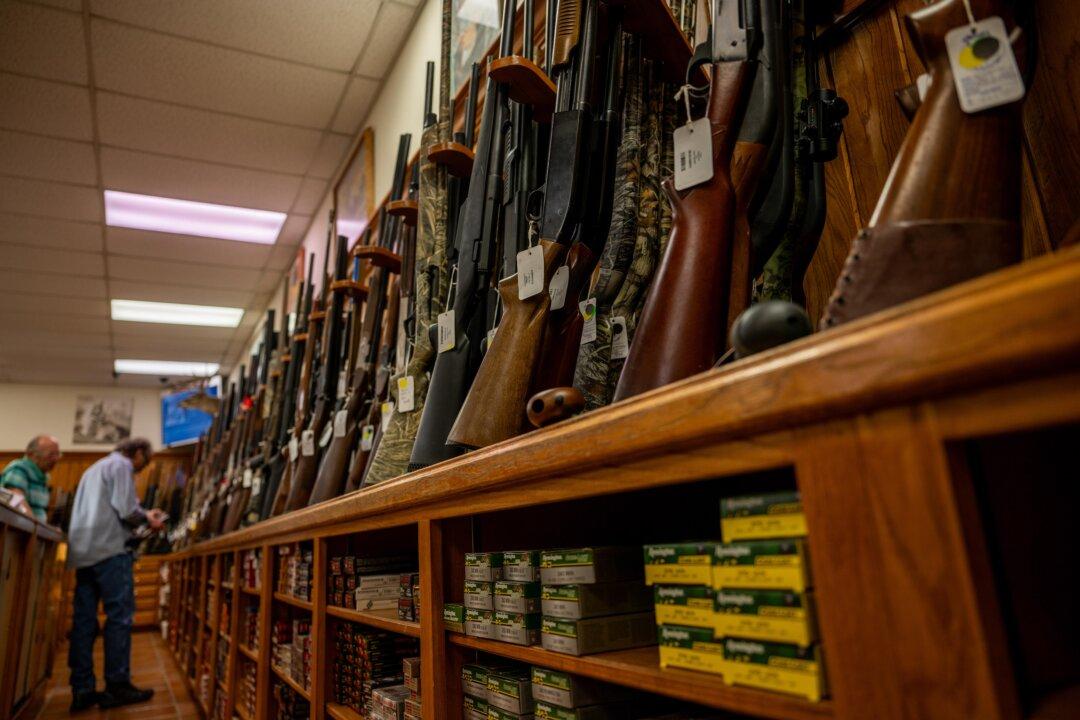In the aftermath of the mass shooting in Maine, a new survey revealed that the majority of America’s voters believe enforcing existing gun laws would do more to help prevent gun violence than passing new laws.
While previous gun-control surveys taken in the aftermath of mass shootings show a rise in the number of Americans who want more gun control laws, a new Rasmussen survey taken in the days after the fatal shooting of at least 18 people in Lewiston, Maine, shows that nearly 60 percent of American voters say the enforcement of existing laws would do more to mitigate gun violence.





